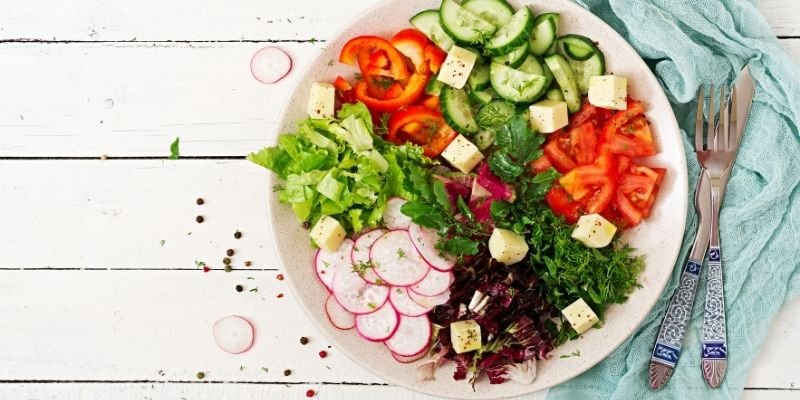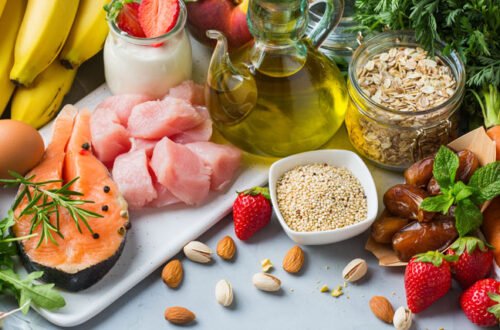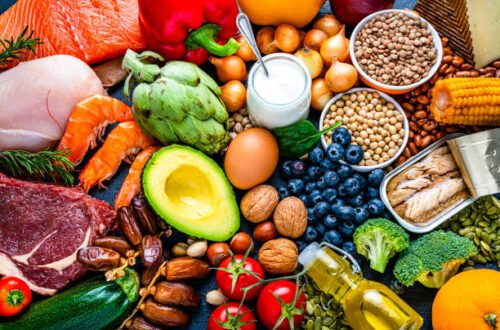Food is more than just fuel—it’s the foundation of a vibrant, healthy life. In 2025, with chronic diseases like diabetes and heart disease on the rise, understanding the impact of nutrition on health has never been more critical. Whether you’re grabbing a quick snack or planning a family meal, what you eat shapes your body, mind, and future. This article explores seven key ways nutrition influences health, packed with practical tips, real-world stories, and a dash of humor to make the science digestible. Let’s dive into how eating smarter can lead to a healthier you!
Why Nutrition Matters in 2025
Nutrition is the cornerstone of well-being, affecting everything from energy levels to disease prevention. The World Health Organization reports that poor diets contribute to 11 million deaths annually, making smart eating a global priority. With processed foods dominating shelves and busy lifestyles tempting us toward convenience, choosing nutrient-rich meals is a powerful act of self-care.
A Personal Wake-Up Call
A few years ago, I noticed constant fatigue despite sleeping enough. A doctor’s visit revealed my diet—heavy on takeout and light on veggies—was to blame. Swapping burgers for salads didn’t just boost my energy; it changed how I saw food’s role in my life.
1. Nutrition Boosts Physical Health
A balanced diet rich in vitamins, minerals, and macronutrients keeps your body running like a well-oiled machine. Nutrients like omega-3s, fiber, and antioxidants reduce the risk of chronic diseases and support organ function.
Key Nutrients for Physical Health
Focus on whole foods: fruits, vegetables, lean proteins, and whole grains. For example, salmon’s omega-3s lower heart disease risk, while kale’s vitamin K supports bone health.
Real-World Impact
A 2024 study found that adults eating five servings of fruits and veggies daily had a 20% lower risk of heart disease. My friend Sarah, a former junk food enthusiast, saw her cholesterol drop after prioritizing plant-based meals.
2. Nutrition Enhances Mental Health
What you eat doesn’t just feed your body—it feeds your brain. Nutrients like B vitamins, magnesium, and omega-3s support mood regulation and cognitive function, reducing risks of depression and anxiety.
Foods for a Happier Mind
Incorporate nuts, seeds, fatty fish, and leafy greens. Dark chocolate (in moderation!) boosts serotonin, lifting your mood. Avoid excessive sugar, which can cause mood swings.
A Mood-Boosting Story
I once met a teacher who struggled with anxiety until she added omega-3-rich chia seeds to her diet. Within weeks, she felt calmer, proving food’s mental health magic.
3. Nutrition Strengthens Immunity
A strong immune system starts with your plate. Vitamins C, D, and zinc, found in foods like citrus, eggs, and legumes, help your body fight infections and recover faster.
Immune-Boosting Foods
Stock up on berries, yogurt, and garlic. Probiotics in yogurt support gut health, which houses 70% of your immune system, per a 2025 health report.
Immunity in Action
During flu season, my colleague Tom swore by his daily smoothie packed with spinach and berries. He stayed flu-free while others snuffled through winter.
4. Nutrition Supports Weight Management
Healthy eating is key to maintaining a healthy weight, reducing risks of obesity-related conditions like diabetes. Fiber-rich foods and lean proteins keep you full, curbing overeating.
Tips for Weight Control
Choose high-fiber foods like oats and lentils, and avoid calorie-dense processed snacks. Portion control and mindful eating also prevent weight gain.
A Weight Loss Win
A 2025 trial showed that participants eating high-fiber diets lost 10% more weight than those on low-fiber plans. My cousin’s switch to whole grains helped her shed 15 pounds without feeling deprived.
5. Nutrition Improves Energy Levels
Ever feel sluggish after a heavy meal? Nutrient-dense foods like complex carbs and proteins provide steady energy, while processed sugars cause crashes.
Energy-Boosting Foods
Opt for quinoa, eggs, and bananas. Hydration is key—dehydration can zap energy, so aim for 8–10 cups of water daily, per Mayo Clinic guidelines.
An Energy Transformation
I used to rely on energy drinks until I switched to oatmeal and fruit breakfasts. The steady energy kept me productive without the jitters.
6. Nutrition Promotes Longevity
A healthy diet can add years to your life. The Mediterranean diet, rich in olive oil, fish, and vegetables, is linked to lower mortality rates, per a 2024 study.
Longevity Diet Tips
Emphasize plant-based foods, limit red meat, and enjoy moderate wine (if you drink). Consistency is key—small changes compound over time.
Living Longer, Better
My grandmother, a Mediterranean diet devotee, is 85 and still gardens daily. Her love for olive oil and veggies might just be her secret sauce.
7. Nutrition Enhances Digestive Health
A healthy gut is the unsung hero of overall wellness. Fiber, probiotics, and hydration keep digestion smooth, preventing issues like constipation or IBS.
Gut-Friendly Foods
Eat yogurt, kefir, and high-fiber fruits like apples. Avoid excessive processed foods, which disrupt gut bacteria balance.
A Gut Health Turnaround
A coworker struggled with bloating until she added fermented foods like kimchi. Her digestion improved, and she felt lighter and more energized.
Comparing Nutrition Approaches
Different diets suit different goals. Here’s a comparison of popular approaches:
| Diet | Key Focus | Benefits |
|---|---|---|
| Mediterranean | Plant-based, healthy fats | Heart health, longevity |
| Keto | Low-carb, high-fat | Weight loss, blood sugar control |
| Vegan | Plant-only, no animal products | Environmental impact, cholesterol |
| Paleo | Whole foods, no processed items | Digestive health, weight management |
Which Diet Is Best?
The Mediterranean diet excels for heart health and longevity, while keto suits rapid weight loss. Vegan diets appeal to eco-conscious eaters, but nutrient deficiencies need monitoring.
Pros and Cons of Healthy Eating
Adopting a nutritious diet has clear benefits, but challenges exist. Here’s a balanced look:
Pros
- Reduces chronic disease risk.
- Boosts energy and mental clarity.
- Supports weight management and longevity.
- Improves immunity and digestion.
Cons
- Healthy foods can be pricier than processed options.
- Requires time for meal planning and prep.
- Social settings may limit healthy choices.
Best Tools for Nutrition Tracking
For those ready to optimize their diet, these tools make healthy eating easier:
| Tool | Features | Best For |
|---|---|---|
| MyFitnessPal | Calorie tracking, nutrient analysis | Weight management |
| Cronometer | Detailed micronutrient tracking | Nutrient-focused eaters |
| Yazio | Meal plans, barcode scanner | Busy professionals |
| Lifesum | Diet-specific recipes, goal setting | Beginners |
Why These Tools Work
MyFitnessPal’s user-friendly interface suits beginners, while Cronometer’s detailed nutrient tracking appeals to data nerds. Yazio’s meal plans save time for busy folks.
People Also Ask (PAA)
Here are answers to common Google queries about nutrition, optimized for featured snippets.
How Does Nutrition Affect Health?
Nutrition impacts physical health, mental well-being, immunity, weight, energy, longevity, and digestion by providing essential nutrients for bodily functions.
What Are the Best Foods for Health?
Fruits, vegetables, whole grains, lean proteins, and healthy fats like olive oil support overall health, per WHO guidelines.
How Can I Start Eating Healthier?
Swap processed foods for whole foods, plan meals, track nutrients with apps like MyFitnessPal, and stay hydrated.
Where Can I Find Nutrition Advice?
Consult registered dietitians or trusted sites like Mayo Clinic or Harvard Health for evidence-based guidance.
The Role of Technology in Nutrition
In 2025, technology makes healthy eating accessible. Apps, wearables, and AI personalize nutrition plans, while smart kitchen gadgets simplify prep.
Nutrition Apps
Apps like Cronometer track micronutrients, helping you spot deficiencies. They’re like having a dietitian in your pocket.
App Success Story
A friend used Yazio to plan vegan meals, meeting her nutrient needs without guesswork. She lost weight and felt more energized.
Smart Kitchen Tools
Smart scales and blenders, like NutriBullet’s connected devices, measure portions and suggest recipes, streamlining healthy cooking.
Tech in the Kitchen
My smart scale helped me perfect portion sizes, cutting overeating without feeling deprived. It’s like a coach for your kitchen.
Challenges in Healthy Eating
Adopting a nutritious diet isn’t always easy. Cost, time, and temptation pose hurdles, but they’re not insurmountable.
Common Barriers
- Cost: Organic produce can be expensive.
- Time: Meal prep feels daunting for busy schedules.
- Temptation: Fast food is cheap and convenient.
Overcoming Obstacles
Buy frozen veggies to save money, batch-cook meals, and keep healthy snacks handy. My go-to? Pre-chopped veggies for quick stir-fries.
FAQ Section
What nutrients are essential for health?
Vitamins C, D, B, omega-3s, fiber, and minerals like zinc and magnesium support immunity, heart health, and energy.
How does diet affect mental health?
Nutrients like omega-3s and B vitamins reduce depression risk, while sugar spikes can worsen anxiety, per 2025 studies.
What’s the best diet for weight loss?
High-fiber, low-calorie diets like Mediterranean or plant-based plans promote sustainable weight loss without starvation.
How can I afford healthy eating?
Shop in bulk, choose frozen produce, and prioritize affordable staples like beans and oats to keep costs low.
Where can I find healthy recipes?
Websites like BBC Good Food, EatingWell, or apps like Lifesum offer nutrient-packed recipes for all skill levels.
Conclusion: Eat Smart, Live Well
Nutrition isn’t about perfection—it’s about progress. By prioritizing whole foods, balancing nutrients, and leveraging tools like apps or smart gadgets, you can boost your physical health, mental clarity, and longevity. Start small: swap one processed snack for fruit, track your meals for a week, or try a new veggie recipe. As my grandma says, “Good food is good medicine.” In 2025, with science and tech on your side, eating for a healthier life is within reach. So, grab a fork and start building a better you—one bite at a time.





